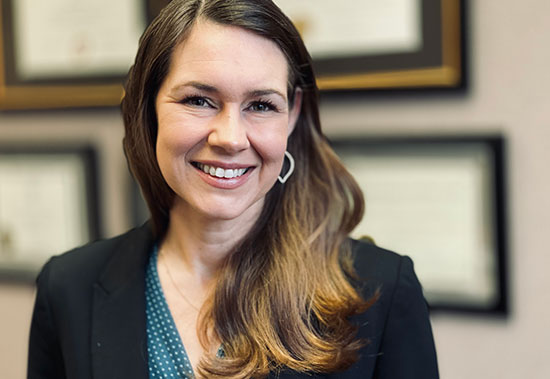
Every year we interview lawyers from across the state to provide a glimpse of current trends in varying practice areas. With a backdrop of a global health pandemic that has no end date in sight, attorneys have answered the continuing call to advocate for their clients, while also dealing with disruptions the pandemic has caused in their own lives.
The ongoing pandemic has affected businesses in different ways. Northern Wisconsin is experiencing a boom in vacationers relocating as they work remotely, increasing residential real estate values, while not providing the boost needed to local commercial and retail businesses or real estate. Entrepreneurs are looking to take advantage of tax provisions that allow certain taxpayers to receive exclusions from federal gains and other tax code provisions that encourage investments in opportunity zones.
Hope is also on the horizon for people seeking to legally immigrate to Wisconsin or resolve longstanding criminal cases. Firms are also taking the opportunity the pandemic has created to work remotely, make investments in technology infrastructures, and refocus their attention on client satisfaction.
Home Sales Up, Business Patronage Down
“For years, vacationers have been looking to spend more time in Rhinelander. Because of COVID, we have experienced a tremendous influx of people that have relocated here from large cities in Wisconsin and bordering states. You now go through downtown and it is not an exaggeration to say that at times at least a third of the license plates are from out of state,” says John M. Cirilli, president of Cirilli Law Offices S.C., Rhinelander.
 Christopher C. Shattuck, Univ. of La Verne College of Law 2009, M.B.A. U.W.-Oshkosh 2015, is manager of Practice411™, the State Bar’s law practice assistance program. If you have questions about the business aspects of your practice, call (800) 957-4670.
Christopher C. Shattuck, Univ. of La Verne College of Law 2009, M.B.A. U.W.-Oshkosh 2015, is manager of Practice411™, the State Bar’s law practice assistance program. If you have questions about the business aspects of your practice, call (800) 957-4670.
“Any home in any condition has pretty much sold. Vacant land is selling, and it would sell faster, but many of the established builders are several years out on building a new home. Based on my conversations with local real estate agents and the high volume of real estate transactions my firm processes, I do not see the trend stopping,” Cirilli added.
The influx of out-of-towners has not increased the number of people available to fill skilled-trade job openings or professional positions. “Most of the people relocating are already working remotely for a company. Skilled-trade jobs continue to go unfilled, and professional firms are shrinking in numbers. In the past 10 years, we’ve seen several established law firms close, and now there are only a few law firms left in town to provide legal representation to the community,” Cirilli explained.
The increased population has helped support local businesses, but not enough to keep all businesses profitable during the pandemic.
“I’m getting a lot of calls from commercial/retail clients that are experiencing severe financial COVID-related stress, and the ones that are in the worst shape are those with preexisting debt. We have a unique demographic in this area because many of the businesses that tourists like to patronize are supper clubs, recreational-based activities companies, such as snowmobile shops, marinas, ski shops, and the like, and locally owned specialty shops. When you only have about five months out of the year to make a profit, and you lose the summer season to COVID, experience a lack of snow in the winter season, and a continuing trend of folks shopping online, it’s difficult for these businesses to survive,” Cirilli said.
The perilous situation for commercial businesses has affected the stigma of filing for bankruptcy protection. “Many businesses in financial troubles are hanging in there and making preparations to possibly file bankruptcy, but only as a last resort. Prior to the beginning of this year, businesses were hopeful that a winter with early snow and a good summer season would help stave off bankruptcy. However, the continuing impacts of COVID have instilled a sense of futility for a lot of business owners, because they can do everything right, but if people will not come to their businesses, it will not make any difference. Unfortunately, many of these business owners are doing everything right, it just is not making a difference,” Cirilli said.

Most of the people relocating [to northern Wisconsin] are already working remotely for a company. Skilled-trade jobs continue to go unfilled and professional firms are shrinking in numbers. In the past 10 years, we’ve seen several established law firms close, and now there are only a few law firms left in town to provide legal representation to the community. – John M. Cirilli, President, Cirilli Law Offices S.C., Rhinelander
Tax Law Changes Create Incentives for Investors
Changes in federal income tax laws since 2010 modified an existing tax provision, I.R.C. § 1202, allowing certain holders of qualified small business stock, who acquire and hold stock for at least five years, in C corporations (“recognized as a separate tax paying entity from the owners”) the opportunity to receive an exclusion from federal personal income tax gains on the sale of the stock.
Tell Us!
What changes in your practice area are you anticipating in the coming year? Post a comment at the end of this article or email the editors at wislawmag@wisbar.org.
“With most states generally following the federal income tax code for purposes of their own state income tax code, like Wisconsin, investors can also receive an exclusion from state personal income tax gains on the sale of the stock, but should watch out for modifications such as Wisconsin limiting the exclusion for stock acquired after Dec. 31, 2013,” says Hamang B. Patel, a partner with Michael Best & Friedrich LLP, Madison.
“Section 1202 is starting to catch a lot of attention, and for good reason. It is an example of a clear inducement by Congress to route dollars that might otherwise go into a mutual fund, to help these small businesses thrive and attract capital. If a client’s business model is such that they can attract investors that can put in cash or property into that C corporation and can expect to hold onto that stock for at least five years, that is a real favorable situation for the investors. Imagine a situation where you or your clients did not know of this provision, formed as a LLC and then had to pay taxes on the sale of the LLC equity that saw a tremendous increase in value,” Patel added.
Another tax-incentive provision growing in popularity concerns qualified opportunity zones, codified at 25 U.S.C. § 1400Z, enacted with the passage of the 2017 Tax Cuts and Jobs Act. “Section 1400Z allows a taxpayer that has sold a capital asset and recognizes gain, within 180 days, to invest cash in an amount equal to the gain that was incurred, in a company that makes a self-certification to be a qualified opportunity zone fund. If the taxpayer holds onto the investment in the qualified opportunity zone fund for at least 10 years, then the taxpayer can later sell that equity investment and recognize no gain on the appreciation that would have occurred over the time of the investment,” Patel explained.
One tax treatment that has recently been working to the disadvantage of unwary business owners can be traced back to taxpayers relying on online or borrowed LLC operating agreement forms that are not suited for an LLC electing to be taxed as an S corporation for income tax purposes.
“In the last few years, the IRS has stepped up scrutiny of LLCs that elect to be taxed as S corporations but use off-the-shelf or online templates of LLC operating agreements. Doing so can inadvertently create a prohibited second class of LLC equity. Because a second class of equity is fatal to maintaining S corporation status, an LLC taxed as an S corporation requires specialized operating agreement language. Using the wrong version of an LLC operating agreement can not only cause an LLC to lose S corporation status, but also become subject to corporate tax as if it was a C corporation. Stated differently, owners who thought they were using tax planning to reduce the overall tax liability found out their use of inapplicable boilerplate language in the LLC operating documents resulted in their entity being a different entity for income tax purposes, and that they were also required to pay an extra level of corporate tax. Thus, it is always important to match tax planning with the appropriate paperwork,” Patel said.
Patel hopes that in the future, tax laws will become more simple and easy for laypersons to understand. If that occurs, Patel predicts that more people will take advantage of the incentives contained in the tax code and avoid common mistakes that result in higher tax penalties or liabilities.

Section 1202 … [as a tax incentive] … is an example of a clear inducement by Congress to route dollars that might otherwise go into a mutual fund, to help these small businesses thrive and attract capital. If a client’s business model is such that they can attract investors that can put in cash or property into that C corporation and can expect to hold onto that stock for at least five years, that is a real favorable situation for the investors. – Hamang B. Patel, partner, Michael Best & Friedrich LLP, Madison
Increased Efficiencies, Client Communication & Sentencing Reform
“When the pandemic hit and we were all figuring out how to safely hold court cases, all of the hearings were cancelled. The lack of court dates meant that people were not hiring legal representation, and for a couple of months, my criminal defense practice came to a halt,” says May Y. Lee, a solo practitioner at Lee Law Firm LLC, Milwaukee. “Once we started moving cases forward with Zoom appearances, things started to pick back up again.”
“Appearances by Zoom have created tremendous efficiencies in my law practice, especially since many criminal court dates are for scheduling purposes. Instead of having to take time to drive downtown to the courthouse, find parking and the courtroom, then wait for your case to be called, you now can log in and complete other work while you wait for your case to be called. I think the efficiencies of Zoom have also allowed judges more control over their calendars,” explains Lee. “In addition, the extra time has given more time to focus on communicating with my clients.”
Communication with clients is important, especially because each person brings to the table a variety of expectations and life experiences. When asked how diversity affects client perspectives, Lee says, “I cannot recall a time I’ve been explicitly disrespected for being an Asian or Hmong attorney. In some situations, clients have intentionally sought out attorneys with diverse backgrounds because they see those attorneys as people who can relate to the challenges they’ve experienced themselves.”
“However, there are certainly situations where dominant personality types believe they can control the narrative of where things are to go. In those instances, my philosophy is to address the individual and situation as soon as possible, in a professional manner.”
“In my client interactions, I try to recognize and overcome stereotypes, have clear communication establishing the expectations of both sides, and respect the fact that people build up and establish trust in different ways. I also try and put myself in the shoes of clients who are going through difficult situations and to be understanding when they say or react outside of the norm,” Lee added.
“In some ways, COVID has positively impacted the justice system from a criminal sentencing standpoint,” Lee explains. “Case law in Gallion1 tells us that circuit courts are to start with probation as a first alternative, yet pre-COVID sentencing recommendations in Milwaukee County for misdemeanor cases such as OWI second offense or carrying a concealed weapon resulted in pretty significant jail time. Now, the recommendations seem to be more aligned with case law for nonviolent cases.”
“I hope to see this trend continue in the future, not just because I am a criminal defense attorney, but as a taxpaying citizen who sees this from a societal standpoint and our desperate need to reduce the billions of dollars we spend in Wisconsin to incarcerate individuals.”

In some ways, COVID has positively impacted the justice system from a criminal sentencing standpoint. Case law in Gallion tells us that circuit courts are to start with probation as a first alternative, yet pre-COVID sentencing recommendations in Milwaukee County for misdemeanor cases such as OWI second offense or carrying a concealed weapon resulted in pretty significant jail time. Now, the recommendations seem to be more aligned with case law for nonviolent cases. – May Y. Lee, a solo practitioner at Lee Law Firm LLC, Milwaukee
Delays in Immigration Cases & Impact on Flat-fee Matters
“Congress establishes immigration laws and the President of the United States has the ultimate responsibility for carrying out enforcement of those laws. However, the executive branch controls the United States Citizenship and Immigration Services (USCIS), the federal agency responsible for naturalization and immigration,” says Amaro Lopez, an associate with Cottle Pasquale Laborde S.C. in Sheboygan. “My clients are hopeful that the Biden administration will undo some of the changes made by the previous administration.”
Immigration cases can be delayed in situations in which the government will not agree to a joint resolution (agreement to citizenship). “I hope to see a return of government attorneys agreeing to joint resolution in cases where petitioners have little or no criminal record. Otherwise, even in cases involving petitioners with no criminal record, significant legal delays can be involved with folks who have the legal right to become citizens,” Lopez said.
“Another positive internal policy change involves situations where a spouse from another country, with no criminal record, enters the United States and marries a citizen, and has an immigration case opened without previously going through the required USCIS process. Under the Obama administration, government attorneys would agree to have the open immigration case closed with the court, allowing the spouse to go through the USCIS process, return to the court after going through the proper process, and then the court would allow the spouse to return home for two weeks for an interview in their home country, before finally returning to the United States. In the last couple of years, government attorneys have been opposing those types of requests, resulting in clients waiting months in their home country before they can return,” Lopez added.
The pandemic has resulted in additional delays in immigration case timeframes with the temporary closure of USCIS offices. “Green-card and work-permit applications take several months to adjudicate. When the offices temporarily closed and no interviews were taking place, I had several clients that were frustrated. As an example, two clients were scheduled to interview last April and finally got their interview in mid-January,” Lopez said.
Clients are not the only group feeling frustrated by delays. Attorneys taking on flat-fee cases also felt the effect of COVID on their businesses. “When you agree to take on flat-fee cases pre-pandemic, you do not expect your entire timeline to be delayed for several months or even a year,” said Lopez. “The delay has required more of my time to respond to clients in cases that should have already been completed and balancing that time with requests from new clients that need their cases to be filed.”
Looking forward, Lopez is hopeful Congress will pass new legislation allowing workers already in the United States but without proper work papers to receive a path to apply for citizenship. “There is currently nothing I can do for an immigrant who is working here and does not have the proper papers. These immigrant workers have Individual Taxpayer Identification Numbers and pay taxes, they just do not get the benefits of federal programs, such as Social Security. My hope is that Congress will take action and provide a path for these workers to work with the proper papers in the United States,” Lopez said.

I hope to see a return of government attorneys agreeing to joint resolution in [immigration] cases where petitioners have little or no criminal record. Otherwise, even in cases involving petitioners with no criminal record, significant legal delays can be involved with folks who have the legal right to become citizens. – Amaro Lopez, associate, Cottle Pasquale Laborde S.C., Sheboygan
Leveraging Technology & Increased Demand for Estate Plans
“At the beginning of last year, and even before COVID, we were looking at options for upgrading our in-house server or replacing it with a cloud-based server,” says Robyn J. De Vos, a partner with Crooks, Low & Connell S.C., Wausau. “Once the pandemic hit, it became clear that we needed to switch to a cloud-based server to support working remotely. After we made the decision to switch, the market demand for cloud-based servers also increased dramatically. We were only recently able to have our cloud-based server installed.”
Cloud-based servers allow workers to access and work on documents remotely. In addition to document management, compatible case management systems can be used with cloud-based servers. “As a general practice firm, we were really fortunate that we could continue to use our current case management system, Tabs3, in our cloud-based server environment, adds De Vos. “Practice management technology helps me be more efficient, keep track of client files, and have the important notes and milestones of my cases readily available.”
Although firms have been making improvements to their IT infrastructures, the inability to conduct remote witnessing of certain estate planning documents2 has caused many firms to find creative solutions for in-person signings. “In Northern Wisconsin, I think we have a different practice atmosphere than other urban parts of Wisconsin. I have attended estate planning signings on porches, through windows and, of course, participated in curbside signings.”
In the past, estate planning clients have typically underestimated the importance of healthcare and financial powers of attorney, but the pandemic has changed this mindset. “The pandemic really caused a shift in the perceived necessity for having healthcare and financial powers of attorney in place. Instead of simply planning for the distribution of assets upon death, folks started to realize the need to have documents in place that would determine healthcare or financial decisions should incapacitation situations arise or even as a matter of convenience. I think this trend will continue into the future, even after we get past this pandemic,” De Vos explained.
On the horizon, De Vos hopes Wisconsin will pass legislation that allows for the remote witnessing of estate planning documents and continued efficiencies realized by her firm for investing in their IT infrastructure.

Instead of simply planning for the distribution of assets upon death, [with COVID-19] folks started to realize the need to have documents in place that would determine healthcare or financial decisions should incapacitation situations arise or even as a matter of convenience. I think this trend in understanding the importance of these documents will continue into the future. – Robyn J. De Vos, partner, Crooks, Low & Connell, S.C., Wausau
Conclusion
The pandemic has affected everyone; attorneys are no exception. As attorneys, we have the responsibility to advocate for our clients, and sometimes those obligations take precedence over managing our own lives. As we continue to look optimistically toward an end to the global health pandemic, we need to take care of ourselves. If you or your colleagues need assistance, please reach out to the State Bar’s Wisconsin Lawyers Assistance Program at (800) 543-2625. For practice management questions, please contact me at Practice411™, (800) 957-4670 or practicehelp@wisbar.org.
Endnotes
1State v. Gallion, 2004 WI 4, 678 N.W.2d 197, 270 Wis. 2d 535.
2See In Re the Matter of Emergency Procedures for the Witnessing of Wills, Codicils, Powers of Attorney for Health Care, and Declarations to Health Care Professionals During the COVID-19 Pandemic.
